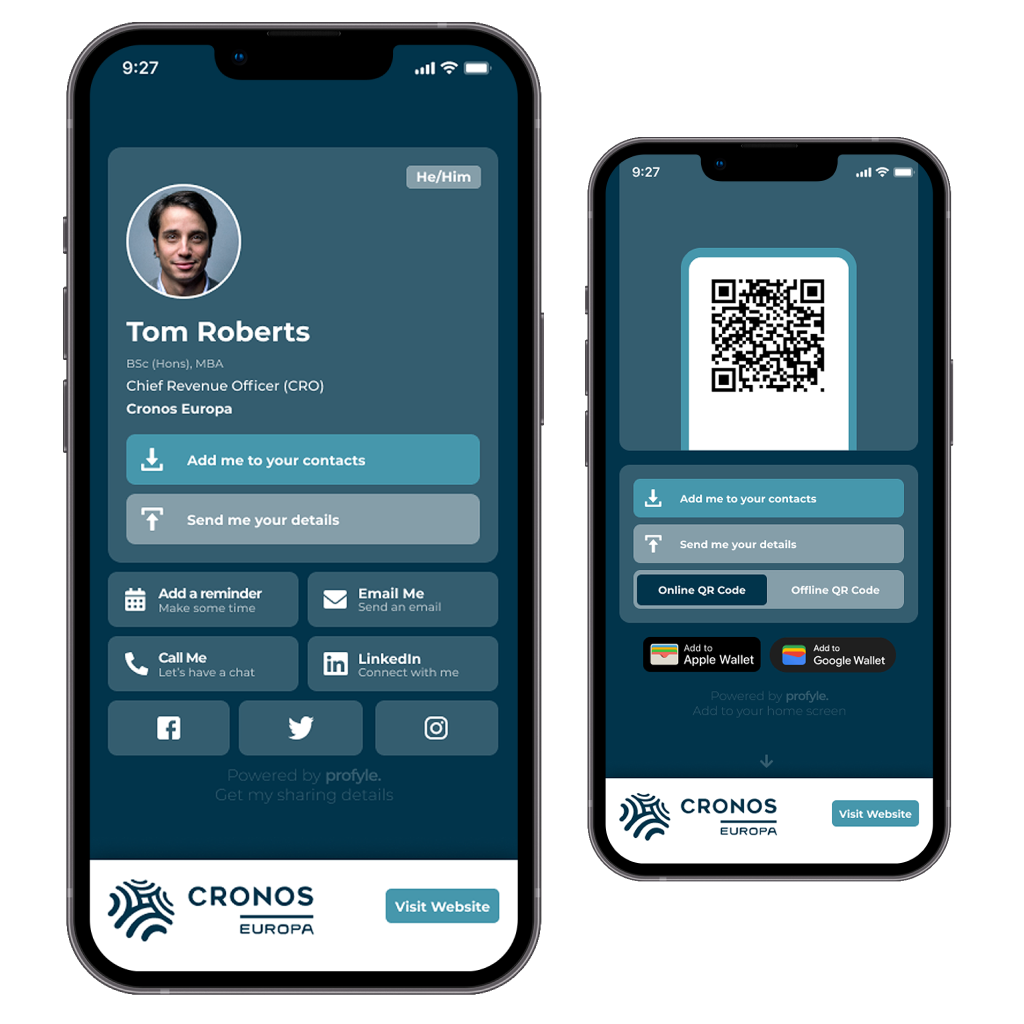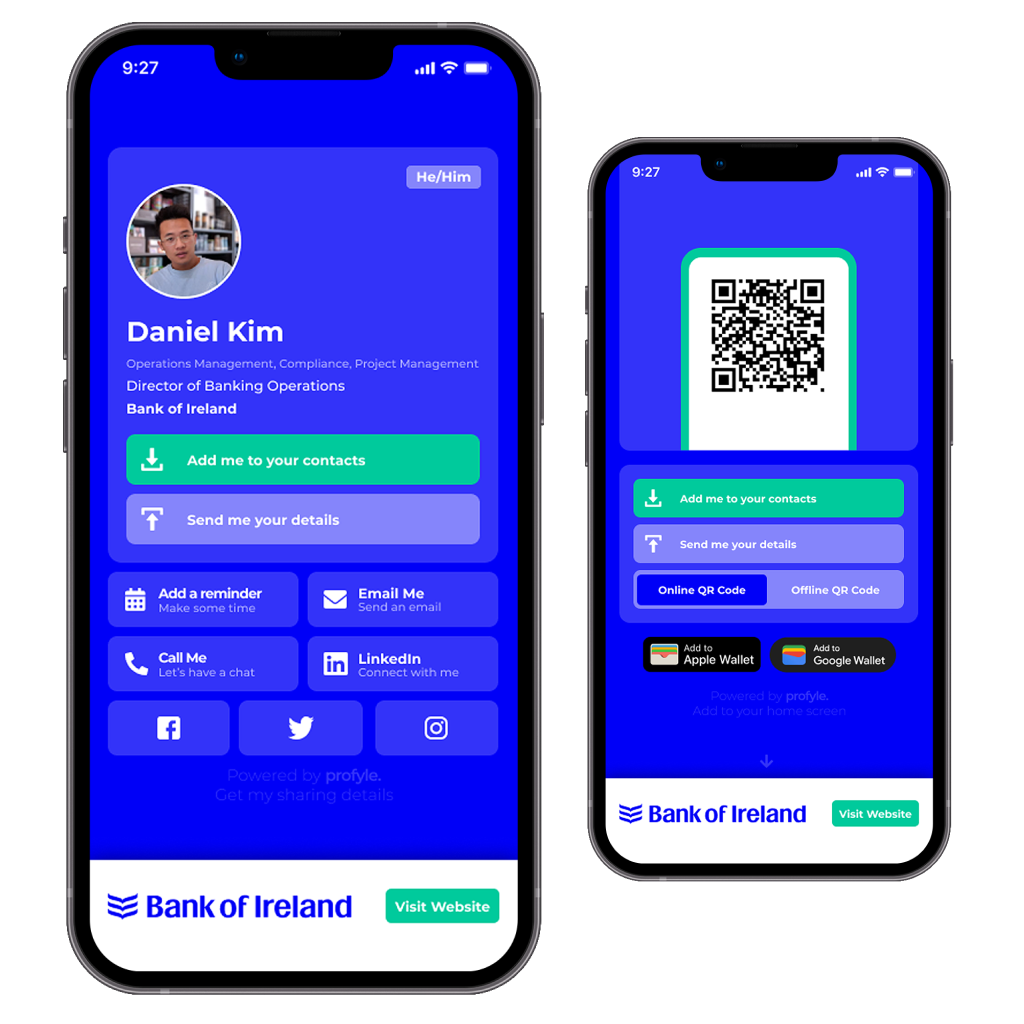Most people hear, but few truly listen. Active listening changes this. It helps you focus, understand, and respond in ways that build trust and respect.
What is Active Listening
In business, active listening can increase sales by up to 8%. It shows clients that you care about their needs. This creates stronger relationships and more successful deals.
Active listening means paying full attention, asking clear questions, and showing you understand. On the simplest level, it entails that:
- You fully focus on the speaker.
- Understand their message.
- Respond to them thoughtfully.

Profyle Digital Business Cards make these connections even stronger. With one tap, you share your contact details, take quick notes, and remember key points from every conversation. Active listening helps you build trust. Profyle helps you maintain it.
Key Components of Active Listening
- Pay Full Attention: Focus on the speaker. Put away your phone. Make eye contact. Nod to show you are listening.
- Reflect and Paraphrase: Repeat what the speaker said in your own words. This shows you understand.
- Ask Open-Ended Questions: Ask questions that need more than a yes or no answer. This helps the speaker share more.
- Do Not Interrupt: Let the speaker finish before you talk. Interrupting shows you don’t value their words.
- Show Empathy: Recognise the speaker’s feelings. Say, “I understand how you feel.”
- Give Feedback: Share your thoughts after they finish. Be respectful.
- Summarise: Restate the main points to show you understand.
- Notice Non-verbal Cues: Watch body language, facial expressions, and tone.
- Hold Back Judgment: Listen without forming opinions too quickly.
Why is Active Listening Important?
People want to feel heard. When you listen well, they trust you. Trust helps build strong friendships and work relationships. Good listening also helps you avoid mistakes and solve problems faster.
Benefits of Active Listening
- Builds Trust: When you listen, people feel respected. They trust you more.
- Solves Problems: Listening helps you understand others. You can solve problems together.
- Avoids Mistakes: You catch important details when you listen carefully.
- Makes Better Choices: Listening gives you new ideas. You can make smarter choices.
- Helps Sell More: In sales, listening helps you learn what customers need. You can offer what they really want.

How to Improve Active Listening Skills
Active listening means fully focusing on the speaker, understanding their message, and responding thoughtfully. Improving this skill can enhance your personal and professional relationships. Here are some practical steps:
- Pay Attention: Focus entirely on the speaker. Avoid distractions like phones or computers. Maintain eye contact and show interest through nodding or smiling.
- Withhold Judgment: Listen without forming opinions immediately. Keep an open mind and let the speaker finish before responding.
- Reflect Back: Paraphrase what the speaker has said in your own words. This shows understanding and allows for clarification. For example, “It sounds like you’re concerned about the project’s deadline.”
- Ask Clarifying Questions: If something isn’t clear, ask questions to gain a better understanding. For instance, “Can you explain more about that process?”
- Summarise: At the end of the conversation, recap the main points. This ensures both parties are on the same page. You might say, “To summarise, we’ll proceed with the new marketing strategy starting next month.”
- Share Thoughtfully: Once you’ve fully understood the speaker, share your thoughts or suggestions. Make sure your response is relevant and considerate.
Barriers to Active Listening
Active listening is important. But sometimes, things get in the way. Knowing these barriers helps us overcome them.
Common Barriers
- Distractions: Noises like machines running or phones ringing can make it hard to focus.
- Preconceived Notions: Having set ideas about someone can stop you from listening well.
- Interruptions: Cutting in while someone speaks can break the flow and cause misunderstandings.
- Emotional Reactions: Strong feelings can cloud your ability to listen carefully.
- Multitasking: Trying to do many things at once can divide your attention and hinder listening.
Overcoming These Barriers
- Minimise Distractions: Choose a quiet place for talks. Turn off devices that might interrupt.
- Keep an Open Mind: Listen without judging. Focus on understanding the speaker’s point.
- Wait Before Responding: Let the person finish before you speak. This shows respect and helps you understand better.
- Manage Emotions: Stay calm. Take deep breaths if you feel upset.
- Focus on One Thing at a Time: Give your full attention to the speaker. Avoid doing other tasks during the conversation.

How Can Active Listening Improve Networking?
Active listening helps you connect with people. In networking, listening well helps others feel important. They trust you more and remember you. In sales, listening helps you learn what the customer needs. You can offer the right solution.
Networking Benefits
When you listen in networking, people feel heard. They trust you. You remember their stories, needs, and goals. This helps you follow up with the right ideas. Profyle Digital Business Cards help you save these details right after your chat.
Sales Benefits
Good listening in sales helps you understand the customer. You can ask better questions and offer what they really want. Studies show salespeople who listen well close more deals. Active listening also helps solve problems fast when a client has concerns.
Using Profyle Digital Business Cards
After a talk, share your Profyle Card. Add notes about your chat. When you follow up later, mention details from the talk. This shows you care. It builds trust and can help you win deals.

Practical Examples of Active Listening
Active listening is useful in many industries.
- Sales: In sales, listening helps you understand what the customer wants. Salespeople who listen ask better questions and offer the right solutions. This builds trust and leads to more sales.
- Healthcare: Doctors and nurses listen to patients to understand their problems. Good listening helps them give better care and avoid mistakes.
- Education: Teachers listen to students to know their needs. This helps them give better lessons and support.
- Business Management: Managers listen to workers to learn their ideas and solve problems. This builds strong teams.

How to Use Profyle Cards with Active Listening
- Listen First: Focus on the person and their needs.
- Share Your Profyle Card: After the talk, share your card with one tap.
- Add Notes: Write down what you learned during the chat. This helps you remember key points.
- Follow Up: Send a message after the meeting. Mention details from your chat. This shows you listened and care.
Benefits of Using Profyle Cards
- Save contact details fast.
- Write notes to remember key facts.
- Show you care by remembering details.
- Build strong and lasting relationships.
Combining active listening with Profyle Digital Business Cards helps you grow your network and close more sales by becoming a more emphatic yet stronger professional.













